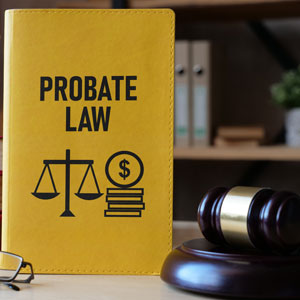
In this article, you will discover: Whether it’s legal to have more than one will in Indiana How Indiana’s courts address when there’s more than one will What happens when an Indiana court declares multiple wills invalid Is It Legal To Have More Than One Will In Indiana? Attorneys doing a new will for someone differ on whether the old will should be destroyed. The primary reason to retain prior wills might be to anticipate a potential challenge to a current will. If a court declares a will invalid, the most recent, valid prior will is the one admitted to probate. If destroyed, this would not be an option. The goal of Indiana in the law of the probate of wills is to give effect to the decedent’s, or testator's,…Read More

In this article, you will discover: The difference between being a social guest and a trespasser with respect to premises liability in Indiana Whether Halloween props or decorations could be considered hazards in an Indiana premises liability case Whether an Indiana landlord would be liable for injuries occurring at a tenant-decorated home on Halloween What’s The Difference Between Trespassing And Being A Social Guest On Halloween In Indiana? Under Indiana law, there are three classifications of people entering onto property: invitees, licensees, and trespassers. Whoever controls the property, whether it's a landowner or tenant, has a duty regarding entrants onto the property, determined based on the classification of the person entering. The highest duty is owed to an invitee, which includes social guests and business invitees. The duty owed to…Read More

In this article, you will discover: Whether an occupant who is not an heir can be forced to move out of a decedent’s home during Indiana probate What happens when a relative who is not on the deed is living in a decedent’s home Whether Indiana heirs are responsible for the mortgage, taxes, or utilities when someone is living on the probate property Can An Occupant Be Forced To Move Out Of The Deceased’s Home During Indiana Probate If They’re Not A Named Heir? Whether that occupant has to move is situation-specific and depends on many factors. The estate’s personal representative has a fiduciary duty to the heirs, beneficiaries, and creditors of the estate. A fiduciary duty is the highest duty under the law and requires you to: Identify, gather,…Read More

When a person passes away estranged from close relatives, questions often arise about who can serve as executor, who inherits, and how probate unfolds under Indiana law. These situations can be emotionally complex, but specific legal rules govern them. In this article, we examine the process of handling a probate estate with estranged family members in Indiana and how a probate attorney can assist in navigating it. Can Someone Still Serve As Executor In Indiana If The Deceased Was Estranged From Them? It is important to note that “estrangement” is a fairly generic term, generally meaning that two people are no longer close or affectionate. This can apply to marital and non-marital relationships alike. So, it is important to specify the facts being considered when approaching the issue. If the…Read More

In this article, you will discover: How you should handle probate if a deceased loved one has property in another state. How “ancillary probate” works for out-of-state assets. The risks of mishandling out-of-state assets. What Should Indiana Families Do When A Loved One Dies Owning Property In Another State? The first step is to schedule an appointment with an attorney in the decedent’s state of domicile, where the primary estate is opened. If there is real estate in another state, there's a good chance that you'll have ancillary probate in that state. You should check to see if the out-of-state property is held in the decedent’s name or if a trust owns it. One of the reasons people will create a revocable living trust is to put real estate from…Read More

In this article, you will discover: What a small estate affidavit is and how it works in Indiana. The advantages and disadvantages of a small estate. When it’s most appropriate to submit a small estate affidavit What Qualifies As A Small Estate Under Indiana Probate Law In Washington County? A “small estate” does not require formal probate administration through the courts. What is a “small estate?” In the State of Indiana, if the net value of an estate after the payment of liens, encumbrances, reasonable funeral and burial expenses, and the costs of administration, exceeds $100,000, then formal probate administration is required. If it is less than that threshold amount, then assets can be transferred via the “Small Estate Affidavit” under Indiana Code 29-1-8-3. How Does The Small Estate Affidavit…Read More

In this article, you can discover… What happens when multiple heirs inherit the same property. Whether one heir can force the sale of a property against the other heirs’ wishes. How an attorney can help settle disputes between a property’s heirs. What Happens When Multiple Heirs Inherit The Same Property In Indiana? This issue can arise with real estate or personal property, but the discussion will focus on real estate. When multiple heirs inherit the same property, the outcomes depend on whether none of the heirs want the property, only one of the heirs wants the property, or multiple heirs want the property. If none of the children want the property, then the property will be sold, and they will split the net proceeds equally. This can be done as…Read More

In this article, you can discover… Whether heirs have to pay taxes on their inheritance in Indiana. What happens when someone’s estate still owes federal taxes. Whether life insurance proceeds are taxable in Indiana. Do Heirs Have To Pay Taxes On An Inheritance In Indiana? As of 2013, residents of Indiana must only contend with the Federal Estate and Gift Tax and do not have to pay state taxes on anything they inherit. As of 2025, only estates worth $13.99 million or more are subject to this Federal Estate Tax, with estates valued under this amount exempt. Additionally, if the lifetime gifts of an estate exceed the annual exclusion amount for that year, the estate will have to pay federal taxes on the difference; in 2025, the gift tax exclusion…Read More

In this article, you can discover… When a transfer of guardianship may be required. How to begin the process of transferring guardianship in Indiana. How an attorney can help you navigate a time-sensitive guardianship transfer. When Will A Transfer Of Guardianship Be Required? Generally, there are three key players who will be involved in transferring guardianship. The first party will either be a minor or an incapacitated adult who requires guardianship. The remaining two parties will include the appointed guardian and the court, who play equally pivotal roles. A guardian is responsible for overseeing an appointed party and their assets as ordered by the court. The court will determine the terms of the guardianship, but Indiana law states that guardianship is required so long as the party in question remains…Read More

Probate court plays a crucial role in managing the distribution of a deceased person’s assets in Indiana, ensuring that estates are administered properly and according to state laws. Whether there’s a will in place or not, the probate court oversees the process, from verifying the validity of the will to settling any disputes. This guide explains the function of probate court in Indiana and provides an overview of how the process works, giving you clarity on what to expect. In this article, you can discover… The role probate court plays in Indiana and how it oversees the estate administration process. Who should attend probate court hearings and what actions are typically contested. How probate court verifies the validity of a will and handles cases where no will exists. What Is…Read More

